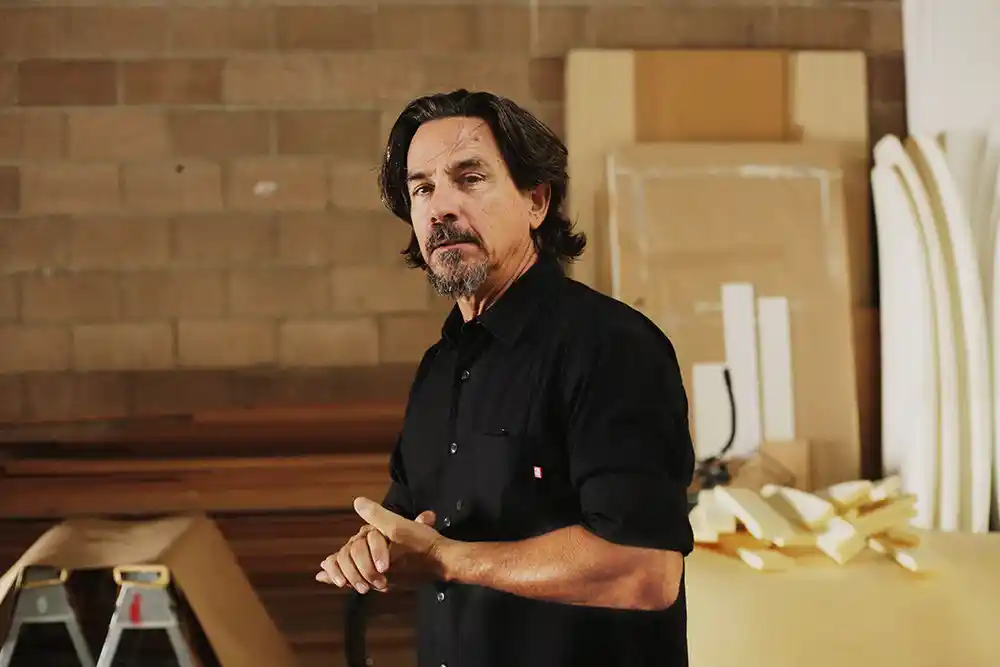Independent clothing brands usually showcase the engrossing journey of the founder, the challenges they encountered as a brand, their dedication towards their values and vision , example of innovation, community involvement, and customer participation, which makes their stories inspiring and builds strong emotional connections with their consumers. They show how passion, creativity, and hard work can turn small ideas into major success stories. On people who had uncertain concepts at first and overwhelmed hardship to create successful brands by working diligently then using creative thinking.
Here are some examples of independent clothing brands that went from zero to hero.
Top 5 Success Stories of Independent Clothing Brands
1. Yvon Chouinard founded Patagonia in 1973
Story: Yvon Chouinard started Patagonia with a small scale. He was a rock climber who used to create his own tools and later he started making clothes for other climbers as well. His products focus mainly on high-quality and sustainability. This brand is also environmentally friendly and Yvon pledged to donate 1% of the company’s profits to environmental causes. Patagonia is now one of the most respected outdoor brands worldwide, sticking to its commitment to being sustainable.

2. Shawn Stussy founded Stüssy in 1980
Story: Shawn Stussy was a surfboard shaper who started putting his signature on shirts he used to sell alongside his surfboards in Laguna Beach, California. His hand-drawn logo caught everyone’s attention. Once started as a small business, grew into one of the first streetwear brands. Stüssy has had a massive influence on skate, surf, and hip-hop cultures and is now recognized as a pioneer in streetwear fashion, enjoying success in the market even after more than 40 years.

3. Sara Blakely founded Spanx in 2000
Story: With barely $5,000, Sara Blakely launched Spanx She created a slimming undergarment by chopping off the feet of her pantyhose. She had pitched her idea to a number of department stores and manufacturers until Oprah Winfrey listed Spanx as one of her favorite goods, which gave her a big break. Blakely became a self-made billionaire as Spanx became a huge hit. The company, which formerly only sold shapewear, is now known for its active wear and apparel lines.

4. Johnny Earle founded Johnny Cupcakes in 2001
Story:Earle started his business as a unique t-shirt line with cupcake designs, primary out by selling shirts out of his van. But then again his original ideas and limited-edition bakery-themed boutiques became well-known very fast. From side to side using innovative marketing strategies and word-of-mouth advertising, Johnny Cupcakes became a well-known worldwide creation praised for its individuality and vibrant community, showing that untraditional concepts can achieve exceptional success.

5. Richard Saghian founded Fashion Nova 2006
Story: He started it as small Los Angeles The brand gained attention when he used his Instagram marketing to reach a wider audience. Partnering with influencers and celebrities like Cardi B, Fashion Nova became trendy yet affordable clothing. With the help of social media , Fashion Nova transformed into a billion-dollar brand, bringing revolution in the fashion industry.

Key Takeaways from Their Success
- Authenticity: These businesses remain loyal to their objectives and remain true to their own identity which helps them flourish .
- Innovation: These big business recycled revolution to capture market possibilities
- Sustainability: Through the request of moral and workable business principles, these businesses were able to expand and meet the growing demand for ethical and sustainable purchasing.
- Niche Markets: Rather than trying to capture large market segments, these companies focused on smaller, niche markets and gradually cultivated their communities.
- Social Media presence : Some of the business understood the value of investing and social media, which helped them to enhance brand awareness
How Maker’s Row Can Help?
If you want to launch your apparel brand and you have a vision, Come to Maker’s Row. It supports new apparel businesses by connecting them with manufacturers, streamlining the entire production process from design to delivery. Maker’s Row helps start-ups find their right partners by leveraging technology, helping them become authentic brands by targeting their niche markets. By simplifying sourcing and fostering local manufacturing, it enables businesses to innovate, scale, and stand out.
